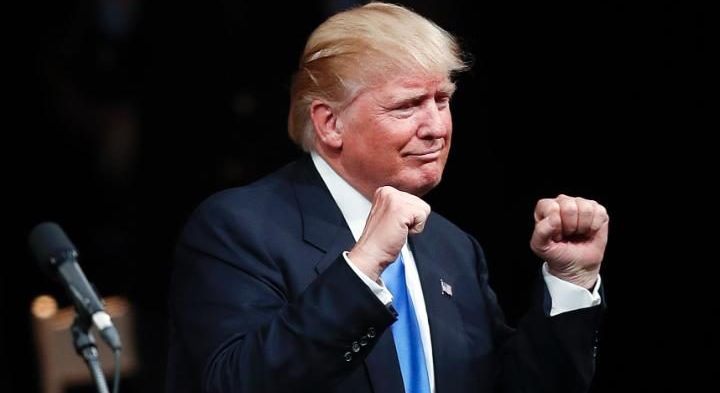American President Donald Trump made good on his threat to ban TikTok on Thursday, issuing an executive order that will bar the wildly popular video app’s parent company, ByteDance, from conducting business transactions with other American companies beginning in 45 days.
A separate order bans business transactions involving WeChat, a popular communications and commerce app owned by the Chinese internet giant Tencent, The LA Times reported on Friday.
The orders come after the Trump administration deemed apps from Chinese software companies national security threats, warning that they could put Americans’ privacy in danger.
“This data collection threatens to allow the Chinese Communist Party access to Americans’ personal and proprietary information — potentially allowing China to track the locations of federal employees and contractors, build dossiers of personal information for blackmail, and conduct corporate espionage,” reads the text of the TikTok order.
TikTok has said it has not and will not give information to the Chinese government. TikTok said its U.S. user information is stored in the U.S. and backed up in Singapore.
Chinese Ministry of Foreign Affairs spokesman Wang Wenbin said at a media briefing Thursday that the Trump administration’s actions against Chinese apps were “typical hegemonic behavior that runs against market principles and international trade rules” and an attempt to maintain high tech monopoly.
The executive order is a blow to TikTok, which has achieved massive global growth as people looked for ways to be entertained at home during the COVID-19 pandemic.
The app is hugely popular in Kenya and has led to the birth of internet sensations such as Azziad Nasenya who now charges a premium to post sponsored content on her social media platforms.
TikTok is in the process of exploring a deal to sell its U.S. operations to Microsoft. Trump has said he is open to such a deal as long as some of the proceeds go to the U.S. Treasury, a condition that experts have described as illegal.
The purchaser, who would have legal standing to challenge such a requirement, in this case has already signaled it may acquiesce. Microsoft in a statement Sunday said it is “committed to acquiring TikTok subject to a complete security review and providing proper economic benefits to the United States, including the United States Treasury.”
But if such a deal goes through, it could deter similar acquisitions in the future.
TikTok employs about 1,500 people in the U.S. and plans to add 10,000 more over the next three years. Its largest U.S. office is in Culver City. The company did not immediately respond to a request for comment.
Responding to the Trump administration’s intensifying rhetoric, the company recently said it will open a transparency and accountability center in Culver City later this year where outside experts can view its content moderation policies and see the code that powers its algorithms.
“With our success comes responsibility and accountability,” CEO Kevin Mayer wrote last month. “The entire industry has received scrutiny, and rightly so. Yet, we have received even more scrutiny due to the company’s Chinese origins. We accept this and embrace the challenge of giving peace of mind through greater transparency and accountability.”
There are signs the U.S. government’s threats to ban TikTok and a ban recently enacted in India are having an effect on its popularity. Last month, the TikTok app was installed 65.3 million times on mobile devices, down 25% from June, according to San Francisco mobile research firm Sensor Tower.
Seeking to defend its dominance in social media, Facebook’s Instagram unit this week launched Reels, a TikTok lookalike feature within its app that allows users to upload videos of up to 15 seconds and add music from tens of millions of songs in its library. Instagram has a built-in audience of more than 1 billion monthly active users.
The action against WeChat and its parent company Tencent comes less than a month after White House advisor Peter Navarro first mentioned the app as a potential target for executive action.













Leave a comment